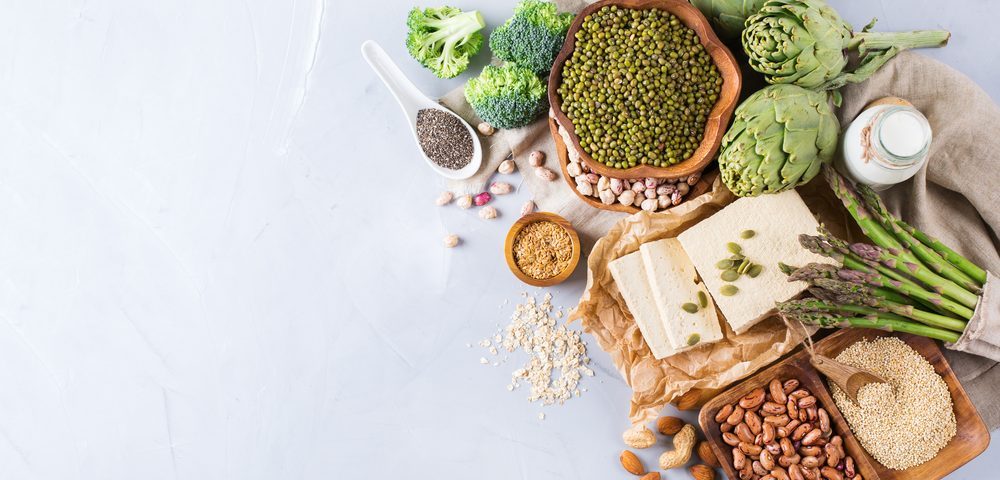Endometriosis symptoms can vary and be unique to each of us. But one thing I’ve noticed is that many of us deal with IBS symptoms, often on a daily basis. This can not only interfere with our daily activities but can also cause embarrassment when eating out and being social. It can be exhausting not knowing what’s triggering these symptoms and, eventually, these complications can take a toll on your confidence and mental health.
Since overhauling my lifestyle and diet three years ago to help manage my endometriosis, I’ve reduced my IBS symptoms to the point where I now only suffer from bloating. I still have some way to go with reducing my bloating levels, but my IBS symptoms no longer cause me daily concern like they once did.
My main struggles were upset stomach and nausea. I’d often go to bed feeling sick and find myself absentmindedly commenting that I felt nauseous that day. It was a weekly occurrence that I’d run late for work because an upset stomach kept me from leaving on time. I got to the point where I was scared to eat out because I’d often have food poisoning-like symptoms afterward.
Enough was enough, and the start of this journey was an allergy and intolerance test. It turned out I was severely intolerant to dairy and gluten, which didn’t come as too much of a surprise, giving that my siblings suffer from coeliac disease and ulcerated colitis. Getting those results gave me the push I needed to begin understanding what triggered me, but it still took some time.
Dairy can be a common cause of diarrhea and an upset stomach, whereas gluten can cause bloating and constipation in others. Experts suggest that cutting out or at least reducing these foods can help manage endometriosis, so experimenting with this could potentially reduce your pain levels and your stomach issues.
I found that milk, cream, and soft cheeses were the worst culprits for me and almost inevitably caused me to fall ill. While hard cheeses and other forms of milk didn’t cause as bad a reaction, I still felt sick and had bloating, so I eventually cut it all out. But knowing which ones were the worst meant I could make informed decisions when I was out and had limited options to eat.
Once these two were off the menu, I still noticed I’d have an upset stomach every single morning, and I also would find myself eating healthy meals out, yet occasionally suffering as I did before.
I eventually realized that my morning fatigue buster, matcha tea, was causing me cramps within 10 minutes. Researchers have studied the effects of caffeine on the stomach, though they mostly focus on coffee. It’s now the general consensus that coffee can cause a laxative effect in some people, especially those with stomach issues, even if it’s decaffeinated. Studies are suggesting that while caffeine does play a part, coffee seems to have a chemical that is also triggering this response, though it’s not clear yet which chemical in coffee is the culprit.
I found that cutting down on both the coffee and the matcha not only reduced my pain but also completely eradicated my morning upset stomach. I’ve also found that a decaf flat white now and then can trigger a bit of a stomach issue, but it’s much more manageable.
The last trigger I came to discover was raw vegetables. Vegetables contain high amounts of fiber that require particular enzymes to break down, which we humans don’t have. If you have a more sensitive stomach, raw vegetables can cause bloating, gas, cramping, and diarrhea. I began noticing when I’d have stomach issues and realized lettuce, cucumber, and spring onions were fine, but bulkier vegetables like carrots and broccoli were simply a no-go. I now make sure that I really cook the more fibrous vegetables, often through steaming. Or if I want some raw carrot in a salad, for example, I finely grate it so it’s less bulky.
If you also suffer from an upset stomach, I highly suggest having a test or seeking the support of a specialist or nutritionist. Track your diet daily, and make a note of when you feel sick, bloated, or have diarrhea. In the beginning, everything might seem like a trigger, which is why I found the test to be a great starting point. If you can’t currently afford a test, begin tracking, and then perhaps try reducing some of the common triggers that I’ve mentioned one-by-one to see the impact.
I now live a life pretty much free from stomach upset, and can eat out in confidence!
***
Note: Endometriosis News is strictly a news and information website about the disease. It does not provide medical advice, diagnosis, or treatment. This content is not intended to be a substitute for professional medical advice, diagnosis, or treatment. Always seek the advice of your physician or other qualified health provider with any questions you may have regarding a medical condition. Never disregard professional medical advice or delay in seeking it because of something you have read on this website. The opinions expressed in this column are not those of Endometriosis News or its parent company, BioNews Services, and are intended to spark discussion about issues pertaining to endometriosis.


